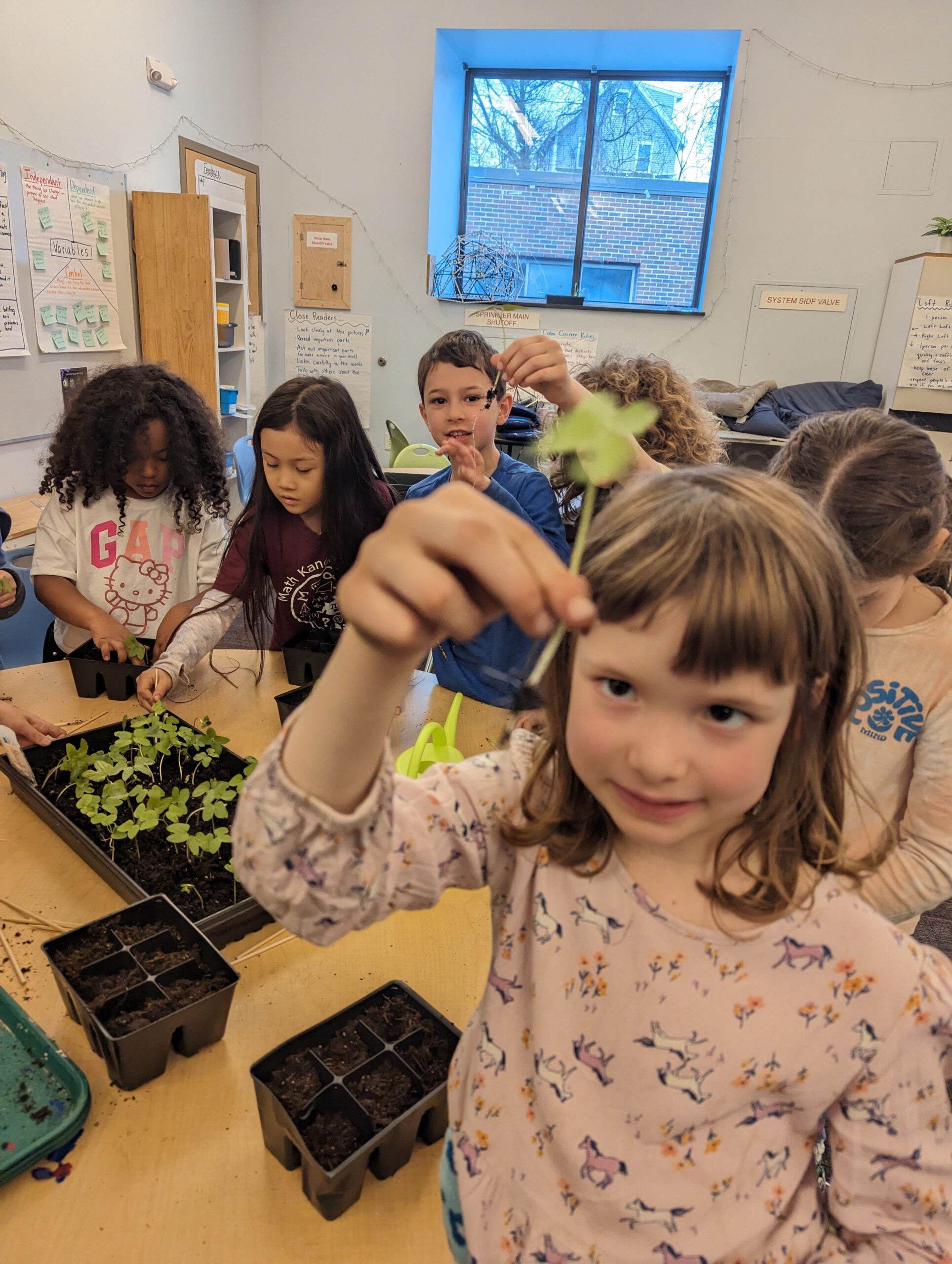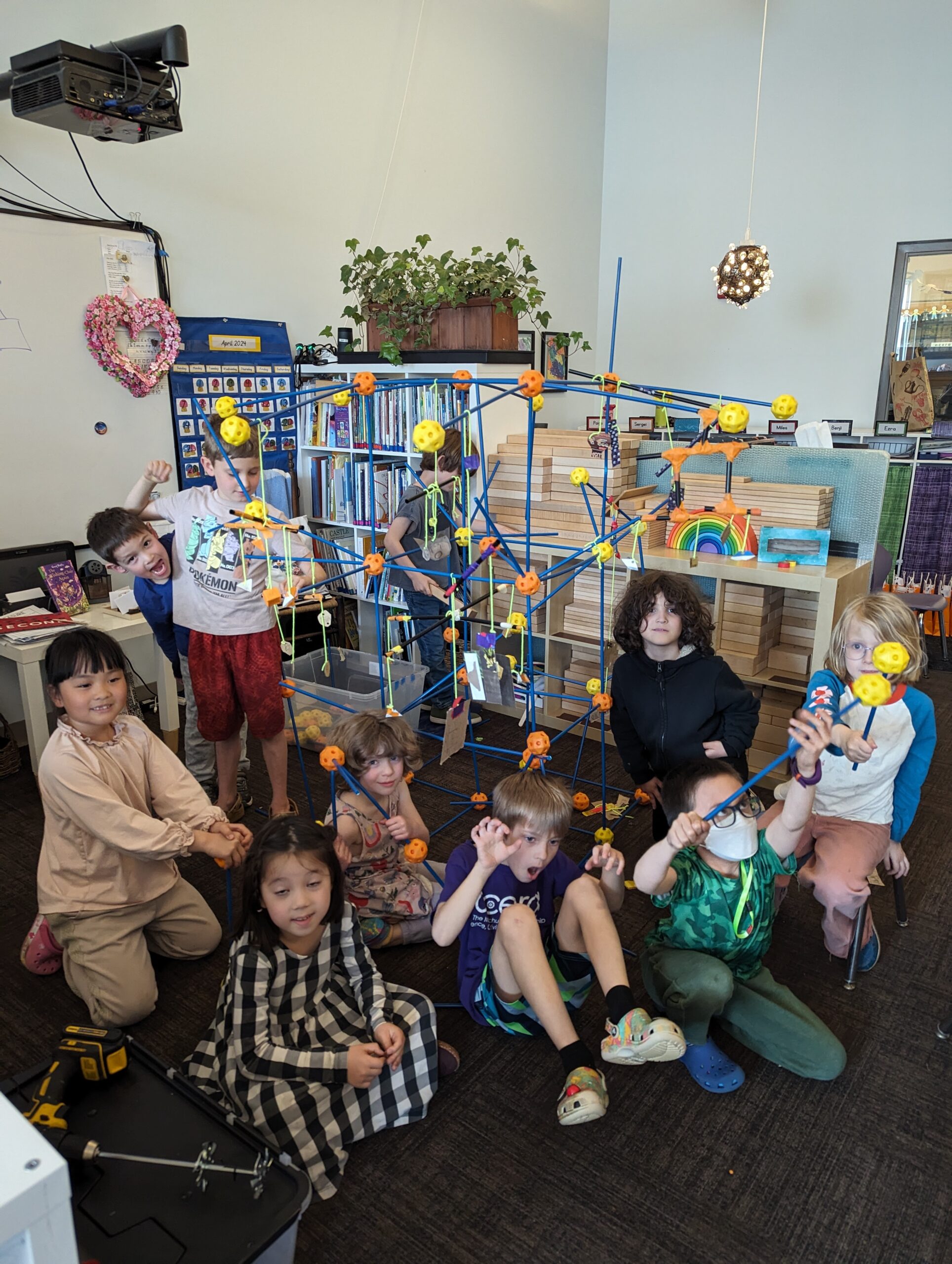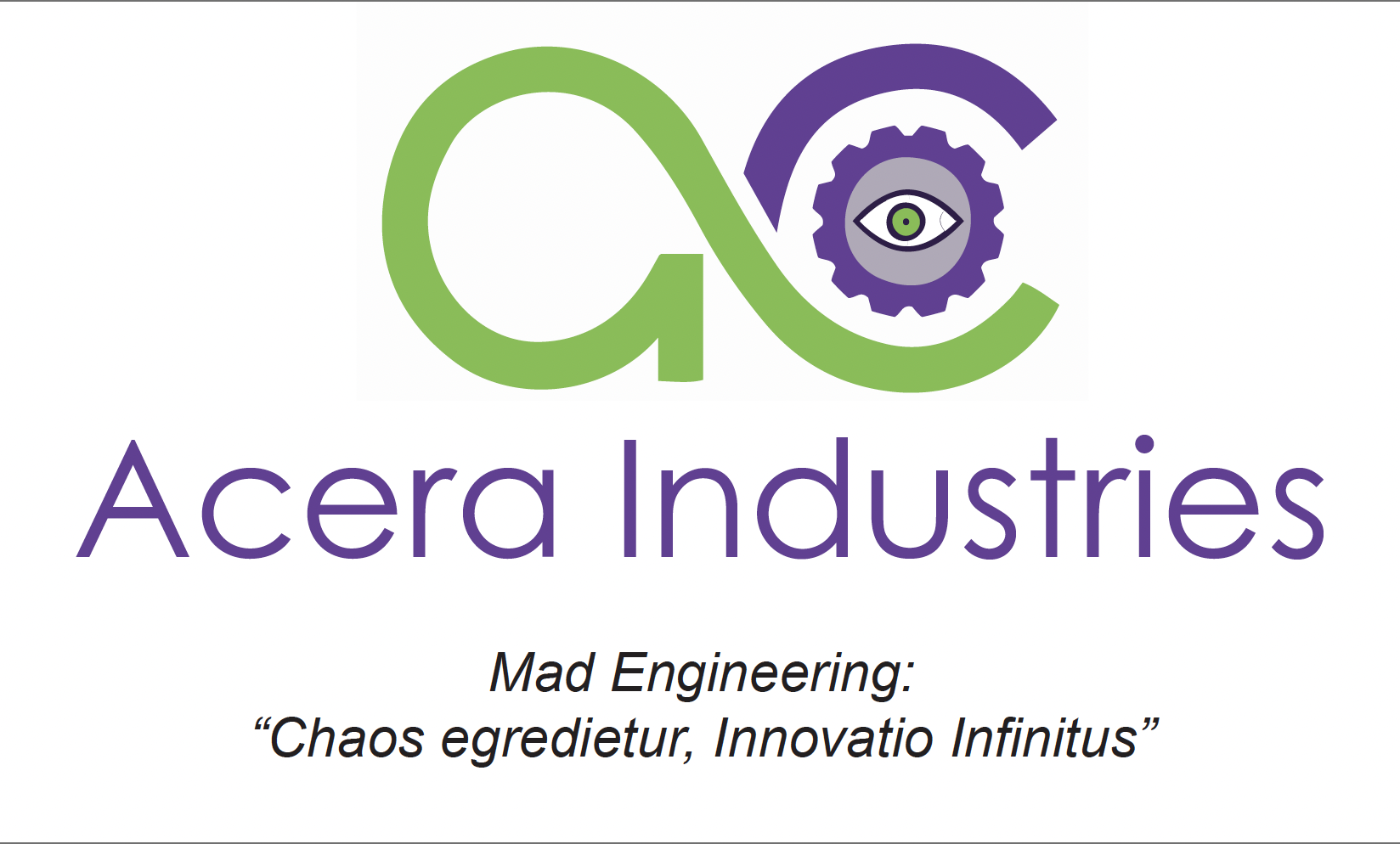Written by Alison Earnhart, MakerSpace Maven It has been my pleasure and privilege to…
Report from the MakerSpace: Collaborations with Arduino

Written by Alison Earnhart, MakerSpace Maven
Researchers from Arduino Education visited Acera on April 12th to experiment with cutting edge technology in Mr. George’s Intro to Science course. Arduino (based in Italy) is a world leader in both industrial and educational microcontrollers, and I’m so excited that they have been working with Acera to develop even more high quality and innovative educational experiences for students.
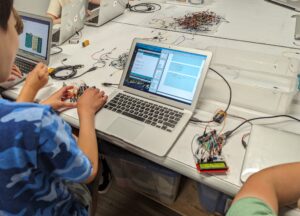
Microcontrollers have changed the world of industry, everyday electronics, and personal invention/making. By shrinking computers with inputs and outputs to items the size of credit cards and thumb nails, the magic of automation and remote sensing can happen almost anywhere, and relatively cheaply. I’ve been working with Arduino microcontrollers in my engineering classes for well over a decade, and I’ve found them to be an ideal introduction for young inventors and designers to get working with classic as well as cutting edge electronics.
On April 12th, Mr. George was joined by two researchers who wanted to test out the new Arduino Science Kit R3, an innovative tool for teaching a multitude of physics concepts with a hands-on approach. They wanted to give their tech a test run with Acera’s brilliant and adventurous students and teachers because they knew they’d need folks who are resourceful enough to wade through technical difficulties and mysterious results while making astute observations and giving thoughtful criticism. In order to get the most authentic data, they met virtually with Mr. George multiple times in advance to ensure they were prepared, but not TOO prepared. Mr. George was the ideal collaborating instructor because they wanted to test with an educator who had no prior experience with Arduino but still had the high level science and tech chops to quickly adapt to new tools. Mr. David Olson was also an essential aid to the endeavor, setting up the student accounts and school’s chromebooks with the necessary tech ahead of time so that things ran smoothly on the day of the testing.
The experiments went well, with students spending an hour using the Science Kit R3 to conduct two data collection experiments. In one experiment, they used the onboard light and color sensor to determine the temperature of various colored materials. In the other experiment, students used the microphone to detect the sound of bouncing balls and visualize the coefficient of restitution (how bouncy the ball is). These fundamental physics ideas were made clear and interactive with the Arduino Science Journal, an app that you can download on your smartphone or tablet to collect and visualize data of all kinds. You can even use the app just with the built-in sensors on your phone. You can check it out for yourself right now!
Mr. George debriefed with the two researchers for two hours later that day, sharing insights and learnings on both sides. Mr. George enjoyed being able to “get deep into the weeds” with them on the tech, investigating what was working well and what needed improvement. Ultimately, the Arduino researchers were very satisfied with their testing at Acera, and as a thank you gift for our collaboration, we now get to keep the class set of Science Kit R3 devices!
While the tech is still very new and there were plenty of hiccups along the way, the students generally had good feedback for the researchers. One student even reported “I wish we could have had more time to work with arduino stuff!” Mr. George was so proud of his students, saying “They liked it enough to want to engage with it again even though it was a challenge.”
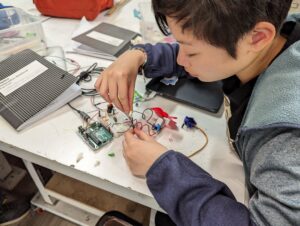
Arduinos can be found throughout Acera in our electives, creativity sessions, and vacation workshops. I used them to teach about basic circuits in my Electronics and the Physics of Electricity course last spring, and each student collaborated on making fun Arduino-based projects such as automatic bubble blowers and anti-theft devices. Currently in my Engineering Foundations class, students recently got a crash course on circuits and coding and are using their newfound skills to design a robotic toy for the lower elementary students!
Beyond the electives, Arduino microcontrollers are also a popular choice for students to supercharge their IMP projects. One of my mentees is currently working on a project where he’s designing a robotic device that will play music on a glockenspiel. He’s using an Arduino Uno to control the moving parts and code the timing and pitch of the music, and having a total blast while he’s doing it!
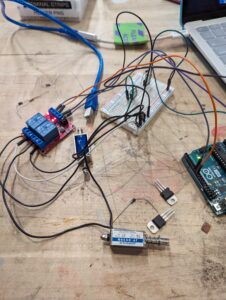
Last summer, I ran an array of Arduino-based workshops for beginners, intermediate students, and advanced inventors. All the courses were a ton of fun to teach, and because they were so popular, we’ll be offering even more Arduino workshops this upcoming summer! While some courses may already be full, I invite you to check and see if there is still room left for your child if they would be interested!
